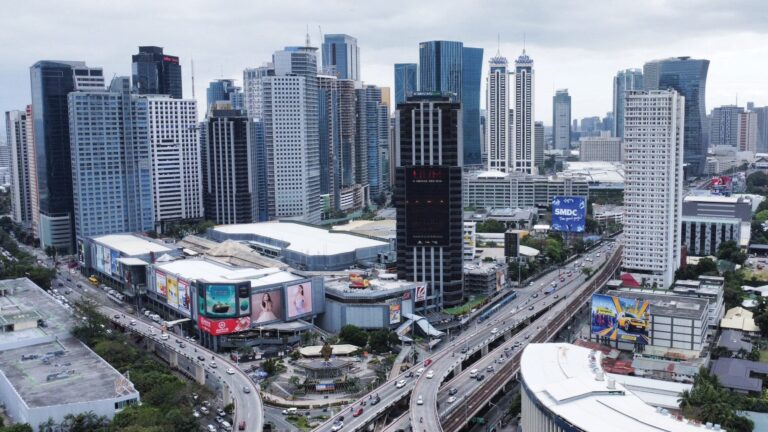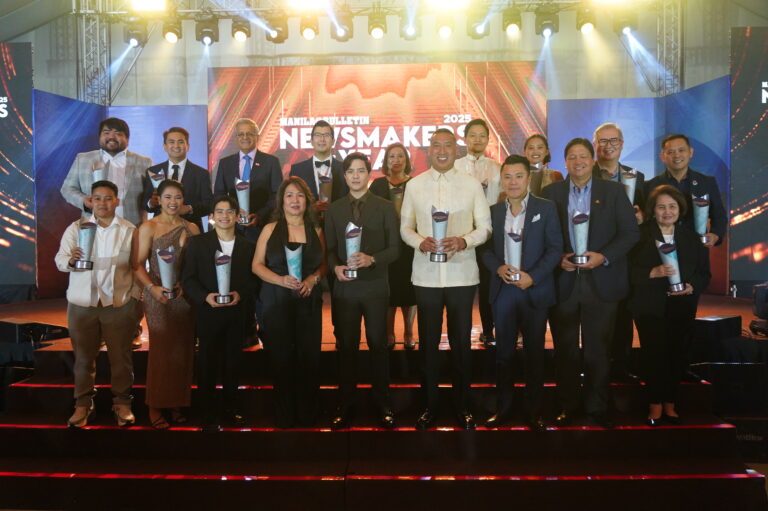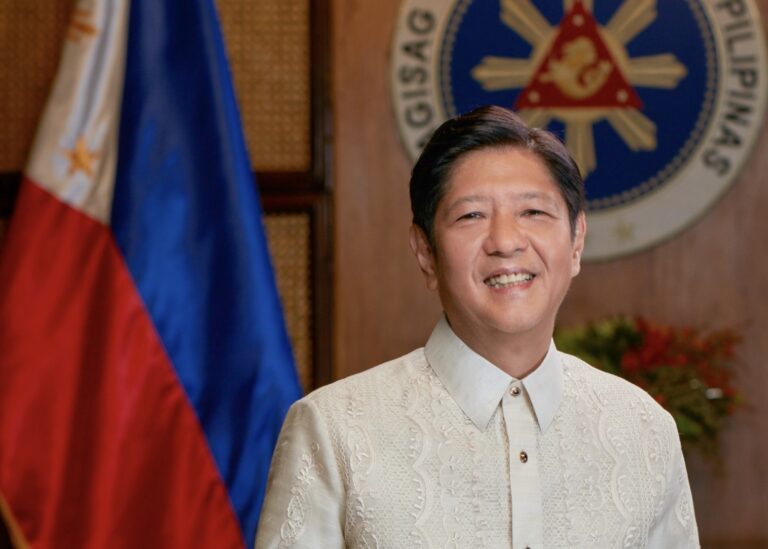As it marks its 125th year, Manila Bulletin takes a look back at some of the diplomatic breakthroughs of the past centuryIs life truly better in 2025? It always depends on who we’re asking and in comparison to what. But, for the sake of perspective, if we reflect on the diplomatic breakthroughs of the past …
As it marks its 125th year, Manila Bulletin takes a look back at some of the diplomatic breakthroughs of the past century
Is life truly better in 2025? It always depends on who we’re asking and in comparison to what. But, for the sake of perspective, if we reflect on the diplomatic breakthroughs of the past few decades, we might begin to see that, in many ways, humankind continues to strive to make life better. As a species, we are a work in progress, constantly evolving, learning, and overcoming obstacles that have historically divided us.
Of course, there are times when we fail, regressing into old ways that have proven harmful, and it can feel like a step backward. Sadly, there are times diplomacy fails and we see its repercussions as some parts of the world are still experiencing violence and war. Learning from the mistakes of the past is not as straightforward as most things in life. One can still hope, however, that putting our trust in collaboration and understanding will eventually lead to positive change.
Take one of the most transformative geopolitical events in modern history: the fall of the Soviet Union. In 1991, the dissolution of the USSR marked the end of the Cold War, a period of intense global tension that had divided the world into competing ideological and political blocs.
The Soviet Union’s collapse reshaped the global landscape, leading to the emergence of independent nations from the former Soviet republics and a shift toward a more interconnected and interdependent world.
The consequences of this seismic shift were far-reaching, and while many countries in Europe and Asia experienced political and economic restructuring, the Philippines, too, felt the ripples.
One of the most transformative geopolitical events in modern history is the fall of the Soviet Union in 1991.
For the Philippines, the end of the Cold War opened up new opportunities for diplomatic engagement and economic partnerships. Traditionally aligned with the West, our country found itself in a position to expand its global reach. It marked the beginning of closer ties with new partners and stronger involvement in multilateral organizations. As the global order shifted, the Philippines also saw an opportunity to redefine its role in global politics—one that would reflect a more dynamic and adaptable nation in the 21st century. These changes, coupled with economic growth, had a profound impact on the lives of Filipinos, opening new doors for trade and employment opportunities abroad.
Looking at something that hits closer to home, the Arbitral Award for the Philippines on the West Philippine Sea in 2016 stands as one of the most significant diplomatic victories for the country in recent years. The ruling, delivered by an arbitral tribunal, affirmed the Philippines’ rights over its exclusive economic zone and invalidated China’s expansive claims in the South China Sea. For Filipinos, the Arbitral Award was not just a victory in international law. It was a powerful assertion of the nation’s sovereign rights and its ability to stand up against larger global powers. This landmark case underscored the importance of the rule of law in international relations and placed the Philippines firmly on the world stage as a nation that values justice, fairness, and peace.
On a more personal level, the award provided hope and assurance to Filipino fishermen who had long faced dangers and restrictions in their own waters. Whether the ruling is enforceable is still up for debate and the situation at sea can prove otherwise, especially since our neighbor has more hard power. For Filipinos, however, the ruling was a symbol that their livelihoods—and by extension, their dignity—were recognized by international law. It also created a renewed sense of national pride, reminding Filipinos that even the most challenging geopolitical issues could be addressed through peaceful, legal means.
Equally transformative has been the normalization of relations between Japan and the Philippines. Over the years, the two countries have strengthened their diplomatic, economic, and cultural ties, emerging as close allies and partners in the region. What was once a relationship marked by historical wounds has evolved into one of mutual respect and cooperation. Today, Japan is one of the Philippines’ top economic partners, and the two nations have forged strong defense and security ties, working together to ensure stability and peace in the Indo-Pacific region. For Filipinos, this partnership has translated into increased job opportunities, enhanced tourism, and greater cultural exchange between the two nations.
In addition, the collaboration between the Philippines and Japan has made waves in various sectors, from infrastructure development to education. Filipino workers in Japan have made valuable contributions to the Japanese economy while Japanese companies operating in the Philippines have helped create employment opportunities for Filipinos back home. The enduring friendship between the two countries is a testament to the power of diplomacy, as it has shown that overcoming past grievances and building mutual understanding can lead to tangible benefits for all parties involved.
One of the most pivotal diplomatic milestones in modern history is the adoption of the Universal Declaration of Human Rights (UDHR) by the United Nations General Assembly in 1948. This seminal document established fundamental human rights and freedoms that all individuals are entitled to, regardless of nationality, ethnicity, or social status. For the Philippines, the UDHR has been an instrumental guide in the ongoing pursuit of justice and human dignity, both within its borders and on the global stage.
The UDHR’s affirmation of the right to life, liberty, security, and equal protection under the law, as well as its prohibition of torture, has profoundly influenced the country’s diplomatic agenda. In particular, the Declaration has provided a solid foundation for advocating the rights of overseas Filipino workers (OFWs), whose labor abroad has been critical to the economy. The Philippines has long been a strong advocate for the rights of its overseas workers, pushing for better protections and fairer labor practices through international agreements and efforts. Such commitment mirrors the core values of the UDHR, which emphasizes the dignity and equality of all individuals, no matter where they are.
The UDHR serves as both a moral compass and a strategic diplomatic instrument, encouraging governments to align their domestic policies with its universal principles of equality, freedom, and dignity. For the Philippines, it is a testament to the nation’s ongoing commitment to human rights and a reminder of the central role these values play in the country’s global diplomatic engagements.
The Paris Climate Agreement is another diplomatic breakthrough with far-reaching effects. While the Philippines, like many nations, faces significant challenges related to climate change, the agreement has helped amplify the country’s voice in the global discussion on sustainability. The Philippines, vulnerable to natural disasters due to its geographical location, has used the Paris Agreement as a platform to call for stronger international action to combat climate change and protect vulnerable populations. Yet, in a recent development, the United States withdrew from the agreement once more, despite its vital importance. This reminds us that, while headway can be made through diplomacy, setbacks do occur and it is crucial to continue advocating for positive change. The agreement serves as a reminder that the fight against climate change is not just a national issue but a global responsibility.
Each of these diplomatic breakthroughs represents a step forward in creating a more interconnected, peaceful, and prosperous world. For Filipinos, these events have brought tangible benefits, whether through asserting sovereignty, forging stronger international ties, or improving the lives of workers and families abroad. But the journey is far from over. As we look ahead to 2025 and beyond, we are reminded that while life may not be perfect, progress is possible. Historically, diplomacy is proof of what humanity can achieve when we choose cooperation over conflict, law over force, and understanding over division.
When countries come together, there is much more to gain than to lose. For Filipinos, the future looks brighter as we continue to play our part in global diplomacy, working toward a world where peace, cooperation, and justice could—with hope—prevail.






